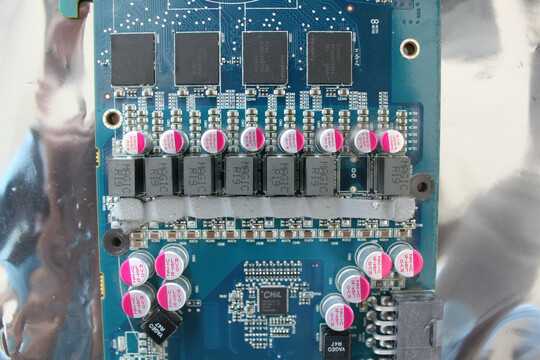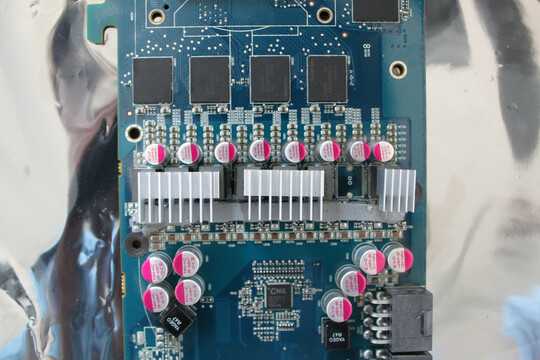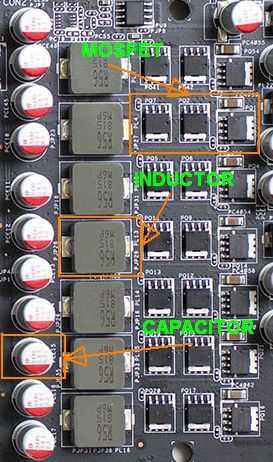8
0
This is quite possibly a stupid question, but the GPU cooler I bought leaves me with little choice but to position heat sinks such that they straddle and join multiple voltage regulators. Is this a bad (ie. disastrous) path to take?
The heat sinks are standard aluminium so they will obviously conduct. However, the voltage regulators seem to have some kind of cover over them.
The instructions that came with the cooler are completely unhelpful in this regard.
Here is a picture of the voltage regulators on my board:

And here is how I was planning on configuring the heat sinks:


2A picture would be nice. – James Mertz – 2012-07-25T13:21:41.210
1Pictures added. – me-- – 2012-07-25T13:31:31.323